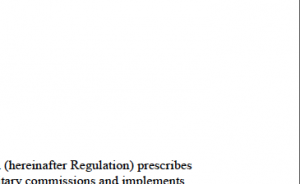The Detainee Debate Heats Up: The Rule of Martial Law Vs. the Unitary Spookery
As I noted yesterday, Obama issued a veto threat for the detainee provisions included in the Defense Authorization. Since then, both Dianne Feinstein and Carl Levin have given speeches on the floor, arguing against (DiFi) and for (Levin) the provisions.
And while I’d be happy to see the provisions in question fail (because the provisions represent a further militarization of our country), effectively the argument being made is between those (the Republicans, enabled by Levin) who support further militarization of law and those (DiFi and, especially, the Administration) who want the Executive Branch to continue fighting terrorism (and whatever else) with an intelligence-driven approach bound by few legal checks.
DOJ’s Special Forms of Extended Interrogation and Coercion
In a sense, DiFi’s speech on Thursday looked like an appeal to rule of law. For example, she warns of the danger of “further militariz[ing] our coun ter ter ror ism efforts.” But what she really focused on in her speech–implicitly–are the tools the government has wrung out of the civilian legal system to make it easier to get intelligence (whoever picked a Senate Judiciary Committee member to be head of the Senate Intelligence Committee made this blurring of law and intelligence easier).
DiFi alludes to tools DOJ has that DOD does not. She mentions both Najibullah Zazi and Umar Farouk Abdulmutallab as people whose prosecution within the civilian justice system aided prosecution.
Suppose a terrorist such as Zazi were forced into mandatory military custody. Then the government could also have been forced to split up codefendants, even in cases where they otherwise could be prosecuted as part of the same conspiracy in the same legal system.
[snip]
It was FBI agents who traveled to Abdulmutallab’s home in Nigeria and persuaded family members to come to Detroit to assist them in getting him to talk. The situation would have been very different under Section 1032. Under the pending legislation, it would have been military personnel who were attempting to enlist prominent Nigerians to assist in their interrogation, and Abdulmutallab would have been classified as an enemy combatant and held in a military facility and, therefore, his family would not be inclined to cooperate. This is we have been told on the Intelligence Committee.
She appears to be invoking the way we’re getting people to talk: by threatening and persuading their families. In the case of Zazi, we got him to cooperate by charging his father. In the case of Abdulmutallab, we presumably made some guarantees about treatment if his family would persuade him to cooperate (maybe that’s why he stayed in a minimum security prison through the pre-trial period; I also wonder whether we threatened his prominent banker father).
Most charitably, this is akin to the problem Ali Soufan experienced with Salim Hamdan; Soufan was about to persuade Hamdan to cooperate in exchange for a shorter sentence when DOD dumped Hamdan in Gitmo where there was no option to trade cooperation for better treatment. As the case of Omar Khadr (who was not permitted to spend time with other detainees after he plead guilty) makes clear, in military custody, we lose control of the conditions of someone’s confinement as soon as they plead guilty, and so can’t use that as a tool to get people to cooperate.
But there’s something else DiFi is not saying, though is out there. With our creative interpretation of Miranda of late, we have interrogated Faisal Shahzad for two weeks without a lawyer; Manssor Arbabsiar for 12 days; and Ahmed Warsame for a month. We got Arbabsiar (and, I would bet, Warsame) to cooperate to ensnare others during the period of pre-arraignment arrest. Thus, for better or worse, civilian detention has actually been offering the government more ways to deploy detainees in intelligence operations than military detention.

